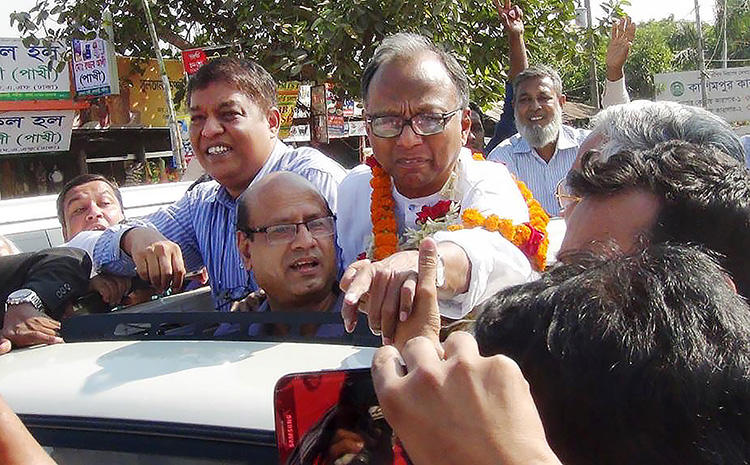
Bangladesh arrests veteran journalist Anis Alamgir on terrorism charges
December 17, New Delhi—Bangladeshi authorities must immediately drop terrorism charges against veteran journalist Anis Alamgir, release him unconditionally, and stop targeting the press with national security offenses, the Committee to Protect Journalists said Wednesday. On December 15, police opened an investigation against Alamgir and three other individuals under Bangladesh’s Anti-Terrorism Act, accusing the suspects of…
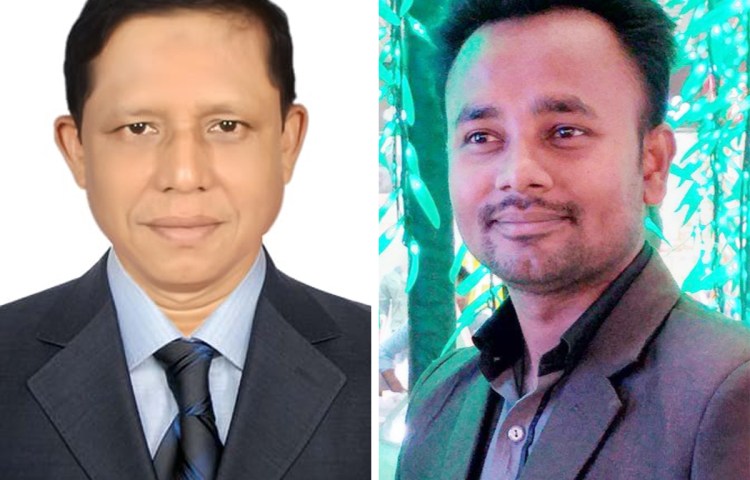
Two Bangladeshi journalists investigated under Digital Security Act
On July 29, 2023, the Savar Model Police Station in Bangladesh’s central Dhaka district opened an investigation into Nazmus Sakib, editor of the Dainik Fulki newspaper and president of the Savar Press Club, and Md Emdadul Haque, a reporter for the Amader Notun Somoy newspaper, after registering a July 28 complaint against them under four…
CPJ calls on Bangladeshi prime minister to arrange for release of journalist Shafiqul Islam Kajol
CPJ asks Bangladeshi Prime Minister Sheikh Hasina to arrange for the immediate and unconditional release of jailed journalist Shafiqul Islam Kajol, whose ill health makes him especially vulnerable to COVID-19 infection, potentially putting his life in danger.
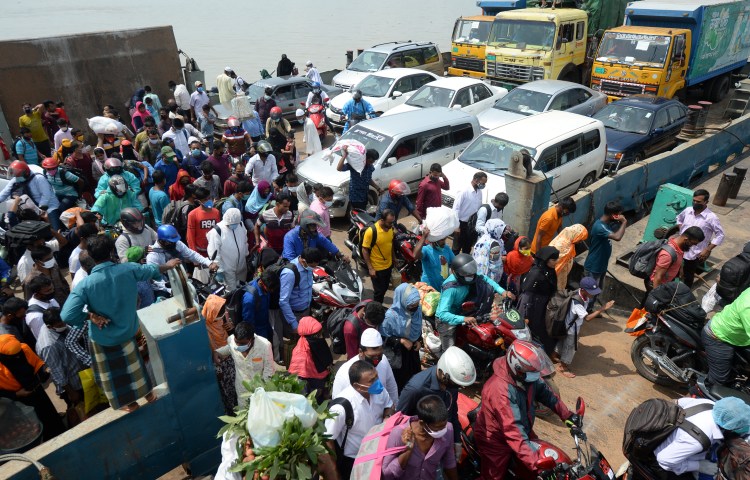
Bangladeshi authorities investigate 5 journalists, detain 2 under Digital Security Act for COVID-19 reporting
New York, June 22, 2020 – The Committee to Protect Journalists today called on authorities in Bangladesh to immediately and unconditionally release political cartoonist Kabir Kishore and writer and commentator Mushtaq Ahmed and to stop using the Digital Security Act to silence critical reporting on the coronavirus pandemic. On May 6, Kishore, Ahmed, and three…
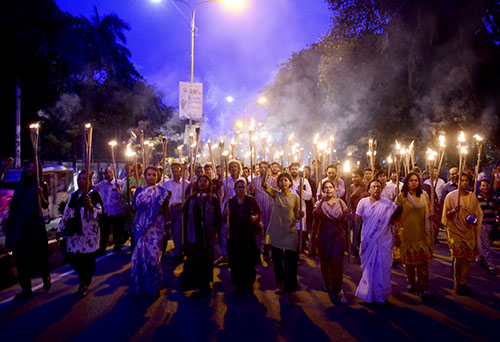
Case will test Bangladesh and its commitment to justice for bloggers
Murder charges filed this week against five suspected Islamist militants in the killing of a Bangladesh blogger give the government a chance to prove it’s serious about protecting the nation’s bloggers. The formal charges, filed in connection with the March killing of Washiqur Rahman Babu, mark the first time charges have been brought in any…
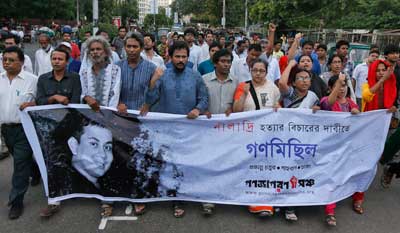
Hasina government must do more to protect Bangladesh’s bloggers
Asif Mohiuddin’s stab wounds are still visible two years on. In January 2013, the outspoken Bangladeshi blogger narrowly escaped death after he was attacked near his office by knife-wielding assailants. His attackers stabbed him nine times on his neck, head, and back, narrowly missing his spine.
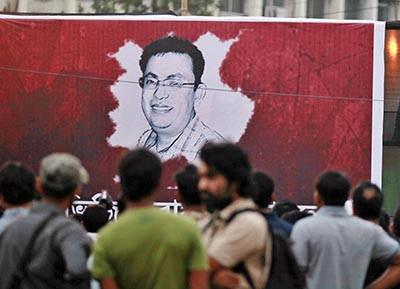
Blogger hacked to death, another seriously injured in Bangladesh
February 27, 2015, Mumbai–Bangladeshi authorities should swiftly and thoroughly investigate the murder on Thursday of a blogger in the capital, Dhaka, and ensure the perpetrators are held to account, the Committee to Protect Journalists said today. Avijit Roy had criticized religious fundamentalism on his blog and had covered secular topics, including free expression.
